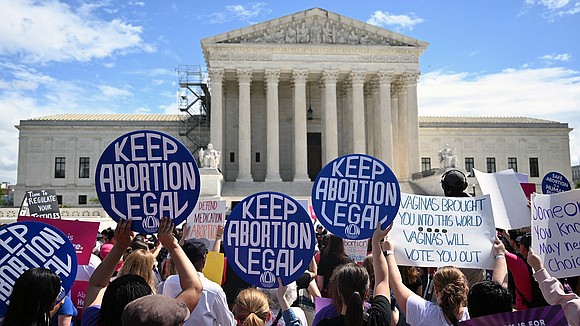Post-Roe, abortion access has dropped in the US, but support has not, survey finds
CNN/Stylemagazine.com Newswire | 4/26/2023, 2:30 p.m.

Originally Published: 26 APR 23 14:01 ET
By Deidre McPhillips, CNN
(CNN) -- The US Supreme Court decision that revoked the federal right to an abortion led to significant restrictions to abortion access, but hasn't affected public support, according to a new survey from the Pew Research Center.
About a year after the court's Dobbs decision, 80% of US adults say that their views on abortion have not changed. More than 6 in 10 say that abortion should be legal in all or most cases, while about a third say that it should be illegal in all or most cases. This divide has changed little over the past few decades, Pew data shows.
Most adults nationwide say that it would still be easy to get an abortion where they live, but that has dropped significantly over the past four years -- especially in states where abortions are currently banned.
Now, more than 70% of adults in states where abortion is prohibited say that it would be difficult to get one in their area, up from 50% in 2019. In states where there are restrictions or ongoing legal disputes, more than half (56%) of adults say that it would be difficult to get an abortion, up from 41% in 2019. In states where abortion is legal, however, this number has stayed consistently around 20%.
At the same time, a growing share of adults support easier access to abortions where they live, including more than a quarter of those living in states where it is legal.
Other research has shown that the average travel time to get an abortion more than tripled after the Dobbs decision, as states enacting complete or partial bans on abortion effectively cut the number of active facilities by a tenth.
The partisan divide on abortions is wide and growing, Pew survey data shows.
About 40% of Republicans say that abortion should be legal in all or most cases, holding relatively consistent since 2007. Democrats are more than twice as likely to support legal abortion, growing from 63% support in 2007 to 84% in 2023.
Nearly half of Democrats say that it should be easier for someone to get an abortion in the area where they live, while nearly as many Republicans say that it should be harder for someone to get an abortion where they live.
And perceptions of local laws differ by party. In states where abortion is currently banned, more than 8 out of 10 Democrats say that it would be difficult for someone to get an abortion, compared with about 6 out of 10 Republicans. A similar gap exists in states where abortion is restricted or facing ongoing legal dispute.
Overall, however, there is widespread confusion about abortion laws. An earlier survey from KFF found that nearly half of adults in the US -- including 2 out of 5 women of childbearing age -- were unsure whether medication abortion is legal in their state.
But most demographic groups have held steady in their views on abortion since last year.
According to the Pew survey, conservative Republicans are most likely to say that abortion should be illegal in all or most cases -- about twice as likely as moderate or liberal Republicans.
Also, younger adults are more likely than older adults to say that abortion should be legal, and Black and Asian adults are more likely than White or Hispanic adults to say that abortion should be legal in all or most cases.
The Pew survey is based on a representative sample of more than 5,000 adults in the US who were interviewed between March 27 and April 2, before the recent federal rulings on medication abortion. States were classified by the legal status of abortion as of April 14; under state laws, abortion was considered prohibited in 13 states, restricted or in legal dispute in 11 states and legal in 26 states, as well as in Washington, DC.



